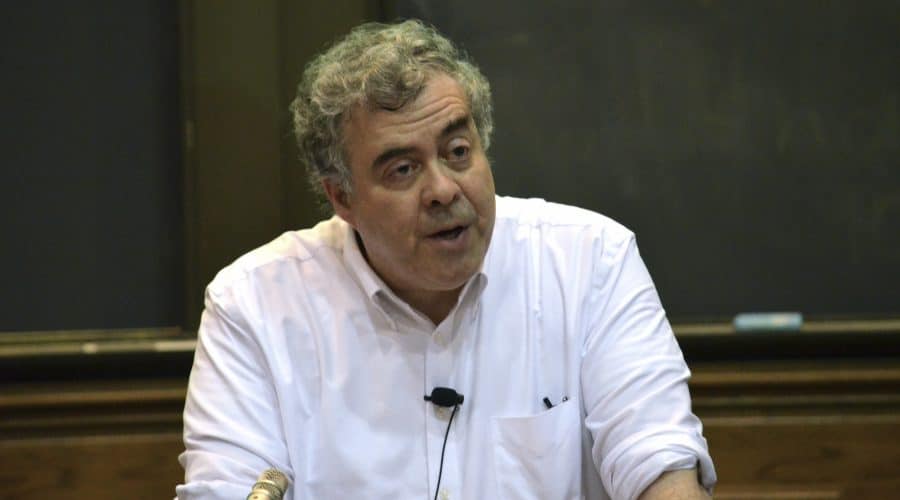The Church’s Astonishing Contribution to Scientific Advancement
The Scientific Revolution that took place in the 17th century and gave birth to modern science did not develop in opposition to revealed religion. “In fact, most of its great figures were devout Christians,” argues Stephen M. Barr—Professor in the Department of Physics and Astronomy and Director of the Bartol Research Institute at the University of Delaware—in his lecture “Science and Religion: The Myth of Conflict” given at the University of Chicago on April 9th.
The list of scientific thinkers who were also men of faith is impressive.
“Copernicus, whose work sparked the Scientific Revolution, was an official of the Catholic Church. Johannes Kepler, famous for his three laws of planetary motion, was a devout Lutheran, who announced the discovery of one of them with the words, ‘I thank thee, Lord God our Creator, that thou hast allowed me to see the beauty in thy work of creation,’” explains Barr.
Of course, one may immediately protest that this isn’t true.
Weren’t there scientists who had a rocky relationship with religion? Wasn’t Galileo persecuted by the Church? With Descartes, didn’t we become less “religious” and more reliant on the truth revealed by the scientific method? That is a myth, argues Barr. “Galileo remained a devout Catholic throughout his life. Descartes, whose work in mathematics was foundational for modern science, believed in God and the reality of the spiritual soul.”
Indeed, the Scientific Revolution wasn’t anti-religious at all. Many scientists were in fact incredibly zealous—to an extent that might astonish us. “Blaise Pascal was not only a mathematician and physicist of genius, but a man whose life was transformed by an intense mystical experience and who wrote in defense of Christian belief and against skepticism. Robert Boyle, the first modern chemist, left a large sum of money to endow a series of lectures whose purpose was to combat the ideas of ‘notorious infidels’ (i.e. atheists). And Isaac Newton, the greatest of them all, spent as much time on theological and scriptural studies as he did on science,” says Barr.
One may wonder then why there is a cultural perception that there is an antagonism between science and religion.
That is because the real conflict is between religion and a philosophy called “scientific materialism” which “wraps itself in the mantle of science” and argues that matter is the ultimate reality, that everything that happens can be explained by the laws of physics and blind chance, explains Barr. What makes the conflict even worse is that scientific materialists adhere to an ideology that sees science as “having a saving mission, which is to free the human mind from irrationality and superstition.” Their ideology critiques religion on three levels: philosophical, historical, and scientific.
Philosophically, they condemn religion for being irrational—a combination of myth and magic. Historically, they hold that religious believers and institutions have been hostile to science, e.g. against Galileo in the past and proponents of Evolution today. Finally scientifically, they claim that the scientific findings in the last 400 years have entirely undermined core Christian beliefs.
Barr takes each of these criticisms in turn. The philosophical critique is based on “crude misunderstandings of traditional ideas about God and Creation.” Judaism and Christianity were never based on a rejection of the natural order. Moreover, “the Book of Genesis was in part a polemic against the supernaturalism and superstition of ancient pagan religions,” says Barr. The Judeo-Christian tradition views God as the Creator of the natural world, as the One who has established its laws and given things their natural powers. “The idea of God as rational lawgiver very likely helped give birth to modern science, as even some atheists at times concede.”
The historical critique of religion is also entirely untrue. “It has been completely discredited by historians of science,” says Barr. “It is a myth, pure and simple, whose roots lie in the Enlightenment, and the contempt many of its thinkers had for revealed religion.”
And finally scientifically, Barr explains that in the past one hundred years there have been several major discoveries and developments—especially in physics—that “seem more consonant with the Christian and Jewish conception of the universe and of man than the materialist’s.” The most shocking example of a scientific discovery that actually supports a religious idea is the Big Bang Theory. This central idea in modern cosmology—proposed by the Catholic priest Georges Lemaître—was initially treated with skepticism. Newtonian physics suggested that “matter, energy, space and time had always existed and always would,” says Barr. But with Einstein’s Theory of General Relativity, one could now describe a universe whose space was expanding. Combining this with observations from astronomers that distant galaxies were receding from us, Lemaître proposed the notion of an absolute beginning to the universe. The Big Bang Theory proves that even scientifically there isn’t much tension between science and religion. In fact, “science now strongly supports an idea that came from biblical revelation and was dismissed by the pagans of antiquity and modern materialists and for a long time seemed contrary to science,” says Barr.
Indeed, far from condemning science or being in conflict with it, the Church has been one of its greatest advocates—with countless scientist-priests exploring the natural world and offering logical, coherent, and systematic explanations for its wonders. Men of the cloth have been involved with founding the sciences of hydraulics and geology, in making important contributions to the development of integral calculus, in discovering an innovative system of botanical classification, in making fundamental discoveries in the theory of sound and vibrations, in discovering the first asteroid, and showing that fertilization in mammals occurs through the union of sperm and egg.
This extraordinary number of Catholic priests who made important scientific discoveries led Lawrence Principe of Johns Hopkins University, a chemist and a noted historian of science, to say, “the Catholic Church has been probably the largest single and longest-term patron of science in history.”


